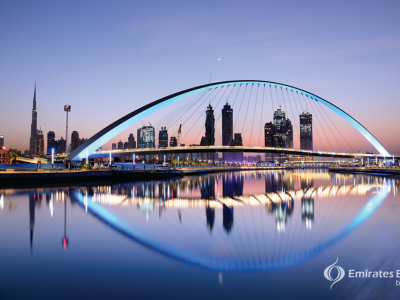Introduction
The UAE’s Vision 2030 is an ambitious roadmap designed to transform the nation into a global leader in innovation, sustainability, and economic diversification. Launched with the aim of reducing dependency on oil and boosting other sectors such as technology, tourism, and renewable energy, Vision 2030 is set to have a profound impact on the business environment. Both local and international businesses are poised to experience significant changes as a result. In this blog, we will explore the key aspects of Vision 2030 and its implications for businesses operating in the UAE.
1. Economic Diversification and New Opportunities
One of the core objectives of Vision 2030 is to diversify the UAE’s economy away from oil dependency. This shift opens up numerous opportunities for businesses across various sectors:
- Technology and Innovation: The UAE is investing heavily in technology and innovation, fostering a startup ecosystem and encouraging the development of smart cities and digital infrastructure. Businesses in the tech sector can benefit from increased investment and support for innovation.
- Renewable Energy: Vision 2030 emphasizes the transition to renewable energy sources. Companies involved in solar, wind, and other green technologies will find ample opportunities for growth and collaboration with government initiatives.
- Tourism and Culture: With a focus on tourism and cultural development, businesses in hospitality, entertainment, and cultural sectors can capitalize on the growing influx of international visitors and investments in iconic projects.
2. Regulatory Changes and Business Environment
The UAE’s Vision 2030 also involves significant regulatory changes aimed at creating a more business-friendly environment. Key changes include:
- Simplified Regulations: The UAE government is streamlining business regulations to make it easier for companies to operate. This includes reducing bureaucracy, simplifying licensing processes, and enhancing transparency.
- Enhanced Foreign Investment: Reforms are being introduced to attract foreign investment, including offering 100% foreign ownership in certain sectors and enhancing investor protection. International businesses will find it easier to enter the UAE market and establish a strong presence.
- Sustainability Standards: The Vision’s focus on sustainability is leading to the implementation of new environmental regulations. Businesses will need to adapt to these standards, which may involve investing in green technologies and practices.
3. Infrastructure Development
The UAE is undergoing extensive infrastructure development as part of Vision 2030. This includes:
- Smart Cities: The development of smart cities like Masdar City and Dubai’s Expo 2020 site is creating opportunities for businesses involved in urban planning, technology, and sustainable development.
- Transportation Networks: Investments in transportation infrastructure, including new metro lines and improved road networks, will enhance connectivity and facilitate business operations across the country.
- Innovation Hubs: The establishment of innovation hubs and business parks will provide companies with access to state-of-the-art facilities and resources, fostering collaboration and growth.
4. Talent and Skills Development
Vision 2030 places a strong emphasis on developing local talent and skills. For businesses, this means:
- Talent Pool Expansion: Companies will benefit from a growing pool of skilled professionals as the UAE invests in education and vocational training. Businesses should align their hiring strategies with the evolving skill sets of the local workforce.
- Collaboration with Educational Institutions: Opportunities for collaboration with universities and research institutions will increase, allowing businesses to tap into cutting-edge research and development.
5. International Trade and Global Positioning
Vision 2030 aims to position the UAE as a global business hub. This has several implications for international businesses:
- Increased Trade Opportunities: The UAE’s strategic location and enhanced trade policies will facilitate access to markets across the Middle East, Africa, and Asia. International companies can leverage this to expand their reach and enhance their global presence.
- Global Business Hub: As the UAE strengthens its position as a global business hub, companies based in the UAE will benefit from increased international partnerships and business opportunities.
Conclusion
The UAE’s Vision 2030 is set to transform the business landscape, creating new opportunities and challenges for both local and international companies. By embracing the changes and aligning their strategies with the Vision’s goals, businesses can position themselves for success in this evolving environment. From economic diversification to regulatory reforms and infrastructure development, Vision 2030 is reshaping the UAE into a global leader and a thriving business destination.







